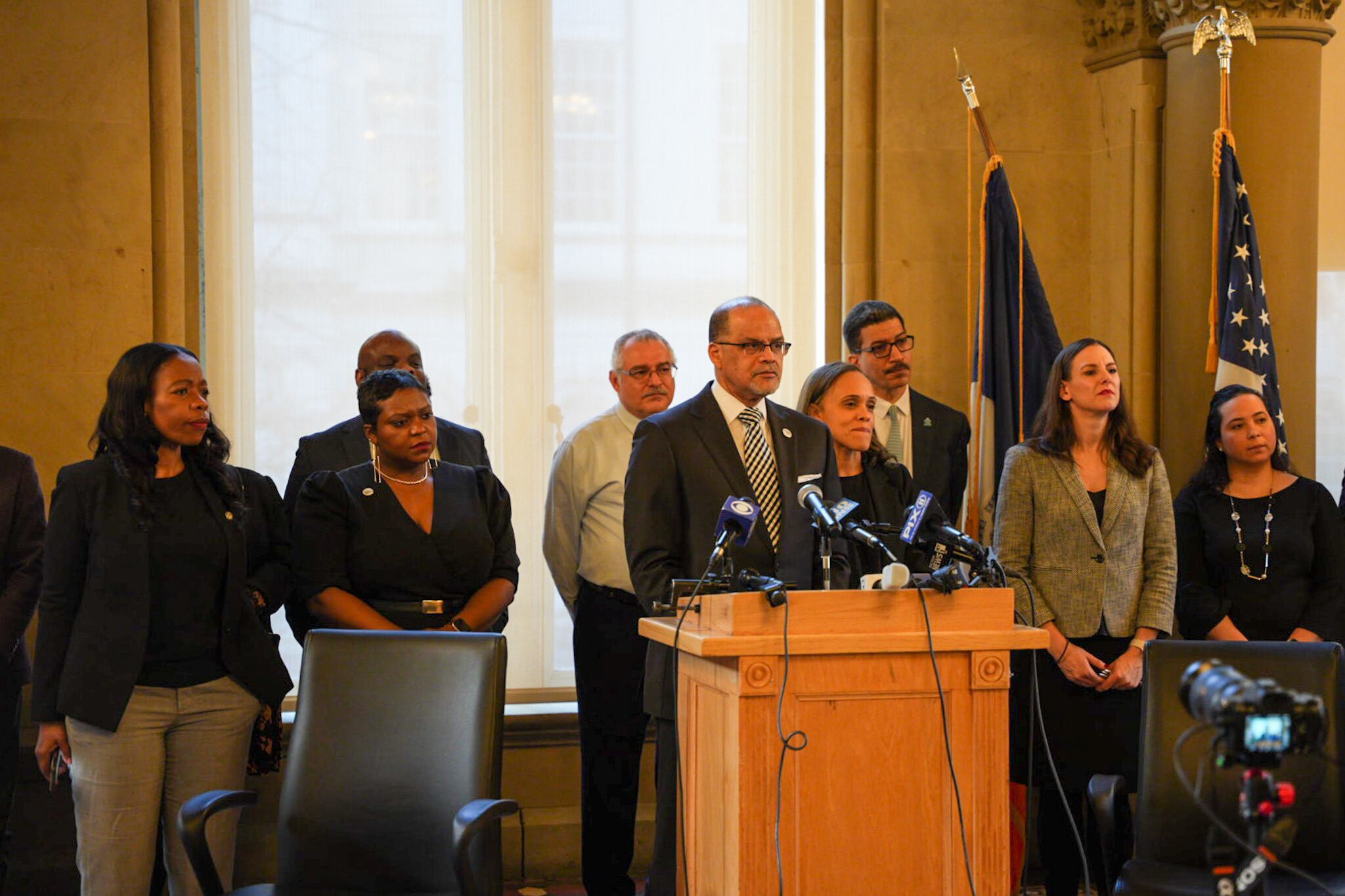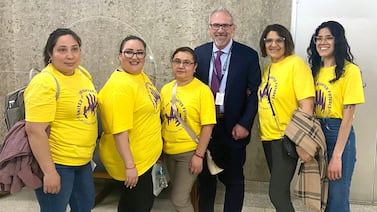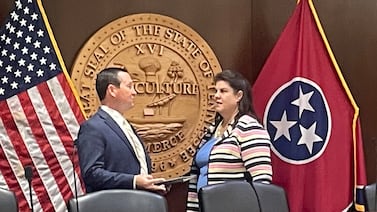Election season has begun for New York City’s Community Education Councils, the advisory bodies that represent the best chance for most public school parents to get directly involved in district and citywide education policy.
Each of the city’s 32 geographic districts has a 10-member elected parent council responsible for holding monthly public meetings, approving education department rezoning plans, passing resolutions, and working with district superintendents. There are also citywide councils representing high school students, multilingual learners, special education students, and kids with significant disabilities in specialized District 75 programs.
This year’s election will be the second since a major rule change that opened the voting to all city parents, instead of just a handful of parent leaders from each school.
Applications for council seats opened Monday, and parents have until Feb. 13 to submit their names. In order to run, parents must have a child currently enrolled in a city public school and an active New York City Schools Account (NYCSA). Parents can run for multiple councils, but only serve on one. Education department employees are not eligible to serve on councils while employed by the agency.
During the last CEC elections, held in 2021 before city schools had fully reopened, there were bitter debates over policies related to school admissions and accelerated programs. There were also wide disparities in voter turnout between districts. In Manhattan’s District 3, one of the city’s wealthiest, the top vote-getter received over 700 votes, while the top vote recipient in Brooklyn’s District 19, which has a similar number of students but twice the poverty rate, got only 39 votes.
While voter turnout was underwhelming in many districts, the number of candidates surged last election cycle, with nearly 1,800 parents throwing their hats in the ring, an increase of roughly 70% from the previous round of elections in 2019.
The education department will sponsor candidate forums from Feb. 27 to April 20. Voting takes place April 21 to May 9. Education department officials didn’t immediately say how voting will take place this year.
District 75 gets broader representation
Parents from the city’s specialized District 75 programs for students with significant disabilities have traditionally elected representatives to a citywide Community Education Council that’s separate from the geographic district councils.
That citywide council will continue. But now, for the first time, District 75 families can also elect a representative to sit on each of the 32 geographic districts’ councils, thanks to a change in state law.
Because Community Education Councils are controlled by state law, the rules governing the bodies are often tweaked when the law granting mayoral control over city schools comes up for renewal. That was the case again last year, during a particularly hard-fought battle to extend mayoral control.
District 75 programs are located throughout the city and often share spaces with traditional public schools. But some staffers have long contended that the specialized programs don’t get equal use of school space and facilities.
“For far too long, our students with special needs have been left out of the equation,” schools Chancellor David Banks said Monday, kicking off this year’s election season at the education department’s Lower Manhattan headquarters. “You can’t have a school system like this and leave any group on a sideline looking in.”
Agency warns against accepting endorsements
In a guide for aspiring council members, the education department warned candidates not to “solicit or accept endorsements from political parties and party officials, or from elected officials, including current Community or Citywide Education Council members.”
“We are very clear in our guidelines that you should not accept endorsements either from unions or organized groups. We don’t want anyone to have an upper hand or an advantage,” said Christina Melendez, the head of the education department’s Family and Community Empowerment office.
Some candidates told Chalkbeat in 2021 they received warnings from the education department about accepting endorsements after the advocacy group Parent Leaders for Accelerated Curriculum and Education as well as the Movement of Rank and File Educators, a caucus within the city teachers union, released lists of preferred candidates. It’s not immediately clear how the education department will enforce the endorsement rule for this year’s election.
Officials target voter turnout
Roughly 22,000 parents, or just 2% of those eligible, voted in the 2021 CEC elections.
Multiple factors may have contributed to the low turnout and disparities in voter interest, including limited in-person voting options because of ongoing COVID-19 restrictions and divides in technological access and know-how.
But Banks also pointed to broader problems with civic engagement that transcend just CEC elections.
“It doesn’t surprise me when folks don’t come out necessarily and vote in great numbers in CEC elections. We don’t come out in great numbers and vote for lots of elections, because we don’t see the direct connection to how it actually impacts our lives,” he said.
Kenita Lloyd, Banks’s deputy chancellor for family and community engagement, said the education department will be hosting workshops in multiple languages every day through the application period for candidates.
Banks added that he’s asked the district superintendents to make it a priority to spread the word about the upcoming elections.
Michael Elsen-Rooney is a reporter for Chalkbeat New York, covering NYC public schools. Contact Michael at melsen-rooney@chalkbeat.org.








